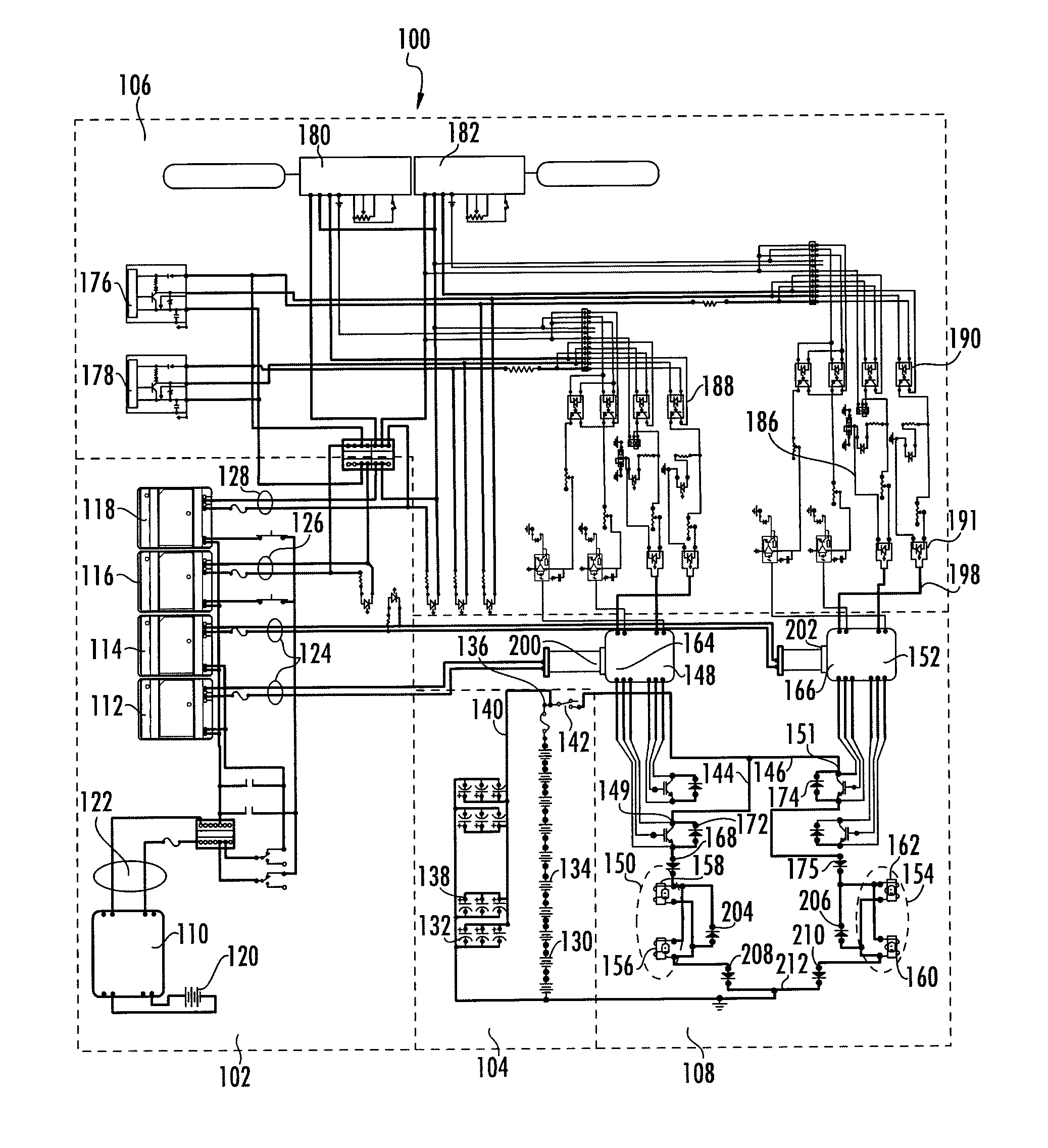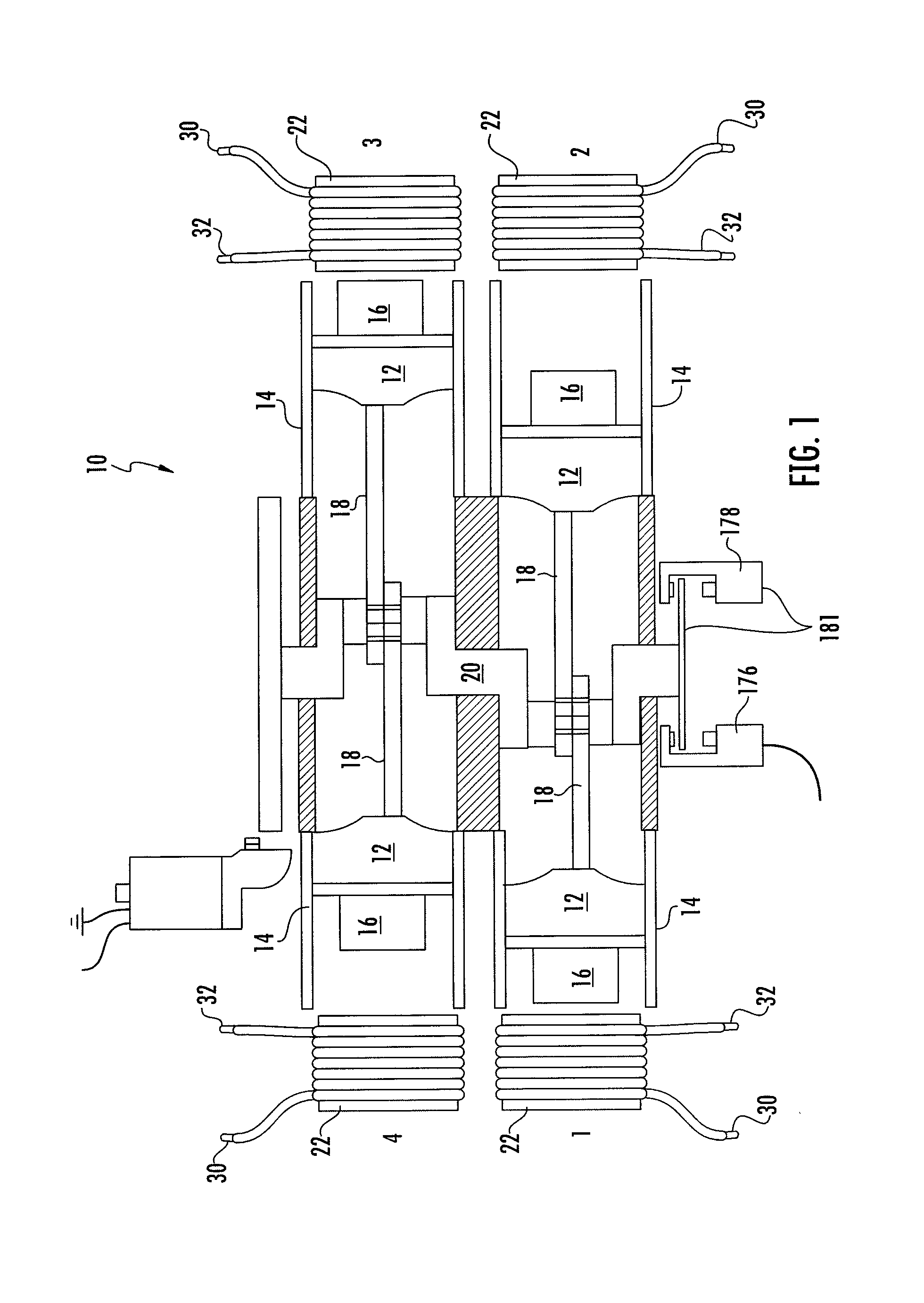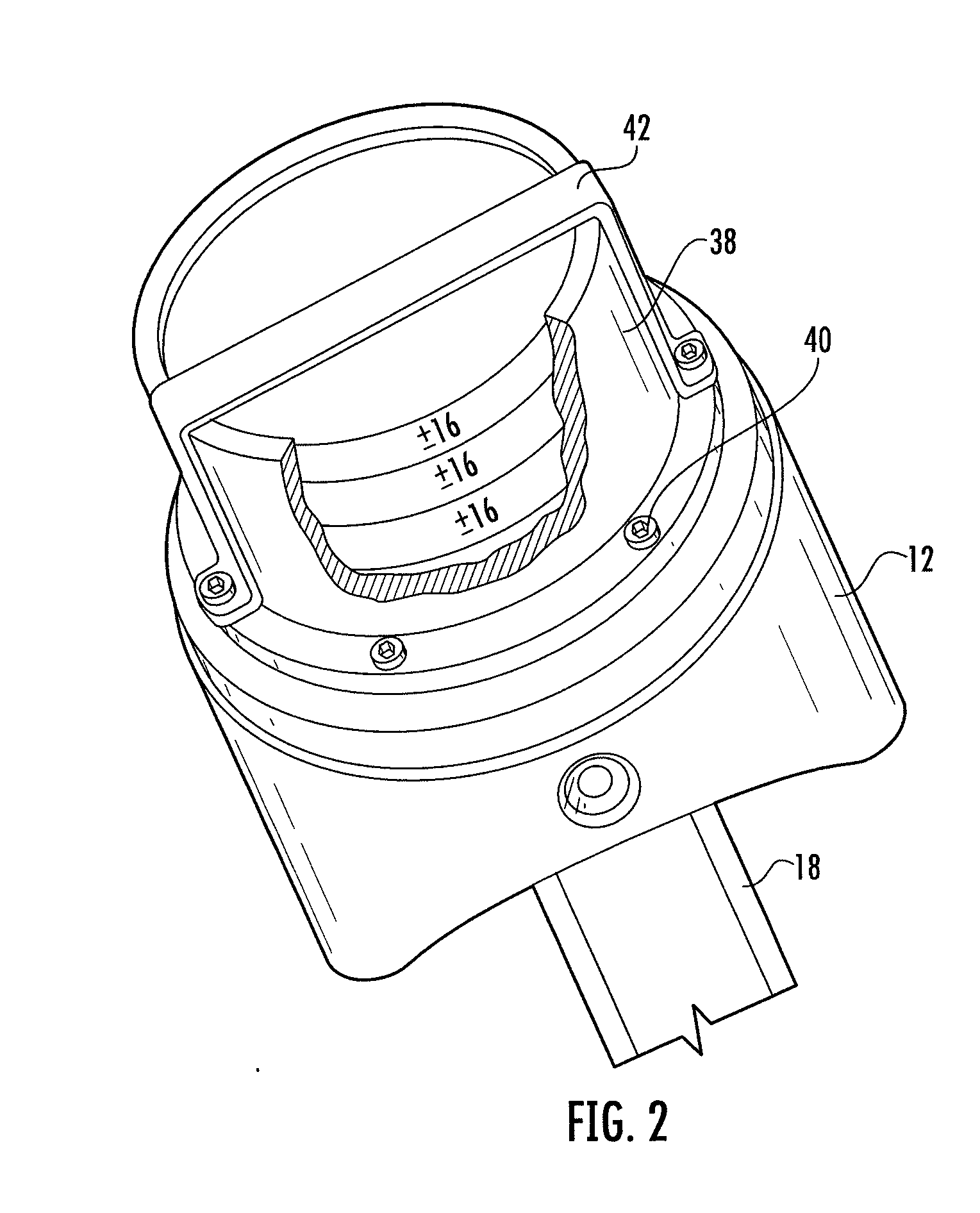Magnetically Powered Reciprocating Engine And Electromagnet Control System
a reciprocating engine, electromagnet technology, applied in the direction of dynamo-electric converter control, motor/generator/converter stopper, multiple dynamo-motor starters, etc., can solve the problems of increasing the cost of fuel consumption, generating heat, noise, vibration and toxic by-products, etc., to achieve the maximum torque produced by the engine
- Summary
- Abstract
- Description
- Claims
- Application Information
AI Technical Summary
Benefits of technology
Problems solved by technology
Method used
Image
Examples
Embodiment Construction
[0034]While the present invention is susceptible of embodiment in various forms, there is shown in the drawings and will hereinafter be described a presently preferred, albeit not limiting, embodiment with the understanding that the present disclosure is to be considered an exemplification of the present invention and is not intended to limit the invention to the specific embodiments illustrated.
[0035]Referring to FIGS. 1 and 2, a magnetically operated reciprocating engine 10 is illustrated. The magnetically operated reciprocating engine 10 includes at least one piston 12 constructed and arranged to reciprocate along a substantially linear path illustrated herein as a cylinder 14. The piston 12 includes at least one, and preferably a plurality of permanent magnets 16 secured thereto. The magnets are preferably secured to a top surface of the piston 12 via a non-metallic sleeve 38. The sleeve may be secured to the top surface of the piston with fasteners 40, and a strap member 42 may...
PUM
 Login to View More
Login to View More Abstract
Description
Claims
Application Information
 Login to View More
Login to View More - R&D
- Intellectual Property
- Life Sciences
- Materials
- Tech Scout
- Unparalleled Data Quality
- Higher Quality Content
- 60% Fewer Hallucinations
Browse by: Latest US Patents, China's latest patents, Technical Efficacy Thesaurus, Application Domain, Technology Topic, Popular Technical Reports.
© 2025 PatSnap. All rights reserved.Legal|Privacy policy|Modern Slavery Act Transparency Statement|Sitemap|About US| Contact US: help@patsnap.com



